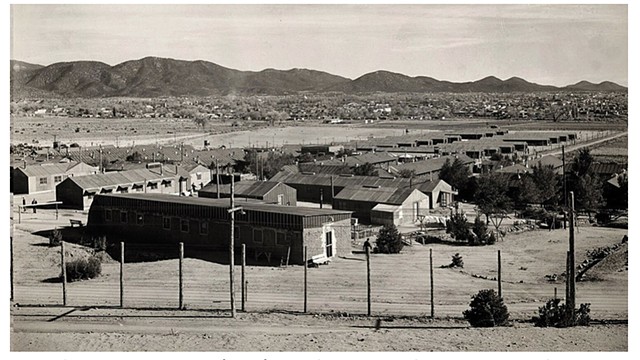After the War: A family history
Sante Fe camp was one of several all male detention centers where Japanese and Japanese Americans who had high levels of education, respected social standing and a cultural connection to Japan earned them a pre-emptive suspicion with the US government.
Santa Fe imprisoned over 4,555 men including my great-grandfather Tokuji.
"The 80-acre camp in New Mexico's capital "was run like a high-security federal penitentiary, with the prisoners treated like prisoners of war, as governed by the Geneva Convention," according to the book Silent Voices of World War II: When Sons of the Land of Enchantment Met Sons of the Land of the Rising Sun. According to authors Everett Rogers and Nancy Bartlit, prisoners had identification numbers stenciled onto their clothes and were penned inside with woven and barbed wire. One hundred guards patrolled the camp, which had a population at its height that constituted 10 percent of Santa Fe's total.
Despite the dehumanizing environment, the men there—most of whom were over the age of 50—were able to operate their own poultry farms and irrigate community vegetable gardens, and produced a newspaper, the Santa Fe Jiho. For a time, a handful were even able to secure daytime work outside the camp, according to Rogers and Bartlit.
Santa Fe was also the site of an uprising by men who had been sent there from a relocation camp in California. Near the end of the war, after years of persecution, hundreds of incarcerated Japanese Americans renounced their US citizenship, legally transforming themselves into "enemy aliens" overnight. Rogers and Bartlit write that over 300 people who had been transported to Santa Fe resisted their confinement with rocks, crowbars and iron pipes against camp guards, who responded with tear gas and nightsticks. Many of the dissidents were transported to harsher camps.”
- From “When Santa Fe had a Japanese Prison Camp Remembering the capital city's role in racialized persecution” Santa Fe Reporter, Aaron Cantu, Feb 2018
Photo courtesy of US Department of Justice
